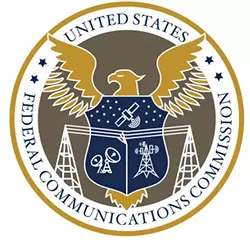
There continues to be confusion in the Amateur Radio community on how we reached this point with proposed application fees in the Amateur Radio Service. Some have said that an "exemption for Amateur Radio was removed with RAY BAUM'S". That is both correct and incorrect. You need to understand the 1986 law and the progress from then to the enactment of RAY BAUM'S.
Here is some clarification on the way it used to be. Prior to RAY BAUMS, Public Law 99-272, which was enacted in 1986 stated in Section 158 of the Communications Act, that the Commission shall charge application fees. Those fees were listed as a fixed table. Amateur Radio was not included as a price point. The law called for the rates to be reviewed once every two years and adjusted based on the consumer price index. But even with that, there was still a fixed fee schedule. In 1989, Public Law 101-239 would extend the number of different price points for various transactions at the FCC. Amateur Radio was never added to the list, but still all other price points were codified. In 1993 with Public Law 103-66, Congress added Section 159 of the Communications Act that codified regulatory fees. In that law, Section 159(h) was added that gave Amateur Radio a specific exemption to regulatory fees.
When the 1986 law as written, there was only four different fees in what was then the Private Radio Bureau: Marine Coast Stations, Operational Fixed Microwave Stations, Aviation (Ground Stations) and Land Mobile Radio Licenses. In the latter, public sector agencies had a specific exemption in the law. The previous law never specifically exempted Amateur Radio from application fees, but at the same time, they never included Amateur Radio as a service liable for the fees. RAY BAUMS eliminates that menu of fees and replaces it with provisions that give the FCC the flexibility to add new radio services and fee categories as modern services are created without having to go to Congress each time a new service is created like they had to in 1992 to codify application fees for Low Earth Orbit Satellite Service (Public Law 102-538). The condition of the new law is that whatever the expenses are to process the application, the FCC has to recover that in application fees.
The public sector exemption survived into RAY BAUMS; a new specific exemption for noncommercial educational (NCE) broadcast stations was put in (previously, like Amateur Radio, NCE stations were never given price points on the rate table) and unlike the companion Section 159 (regulatory fees), that has a specific amateur radio exemption, an exemption was forgotten where it came to Amateur Radio in Section 158 (application fees).
Either some in Congress did not want an Amateur Radio exemption in the legislation, or the lobbying organization for the Amateur Radio Service (i.e. the ARRL) was asleep at the switch. The law does give the Commission some latitude if not charging fees for a specific item is not in the public interest. The law also permits the FCC to waive application fees on a specific item if the cost to collect on the debt exceeds the costs of processing the application. That is the strong argument that REC (and hopefully ARRL and the VECs) will make. I can't justify a $50 fee for a radio service with a 95+% flow-through processing rate.
If we want this fixed for good, then we will need to go back to Congress to get new legislation or make sure that an exemption is included in the FY2021 FCC appropriations legislation or in a different legislation not related to appropriations. I hope this was a wake-up call to the folks in Newington and they will be ready to deal with this. An opportunity was missed.
Remember, the FCC acts at the will of Congress, not the other way. Without new instructions from Congress (through Public Law), the Commission has to follow what we have.
Link to the 1986 legislation (start halfway down page 37 on the PDF):
https://www.govinfo.gov/content/pkg/STATUTE-100/pdf/STATUTE-100-Pg82.pdf
Link to the RAY BAUM'S Act (go all the way to page 736 and look for Section 8)
https://www.congress.gov/115/plaws/publ141/PLAW-115publ141.pdf
Opinions are those of REC Networks
Media contact: Michelle Bradley 202 621-2355
# # # # #

